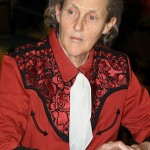I recently received a letter from a friend in Brazil who suffers from Multiple Sclerosis.
I have had a M.S diagnosis for almost 16 years. I’m in contact with many people with all kind of disabilities.
Jesus healed many people but now how the society accepts them knowing that some are seen like a burden, a poor person who received a curse and many other things.
Sorry to ask you this but I can’t find someone who can give me the beginning of an answer. You are a person with an open mind who help others to think. We have to see the world as God sees it so I have one question: How does the Lord see disabled people?
Thanks for your time to read this, hoping to receive the beginning of reflections.
I do not have the complete answer this question deserves, but as my friend suggested, I may have the beginning of an answer.
How does God see disabled people?
As she mentioned, some cultures see a person who is disabled as a curse put on the family and community by the gods or fates. In her beloved homeland some cultures kill disabled children in order to remove the curse.
In our utilitarian West, people who are born disabled or become disabled are considered not normal. And our modern culture’s pursuit of the perfect seeks to eliminate the imperfect.
But the Judeo-Christian worldview has a high view of all human beings. God sees each person as a unique individual made imago Dei (in God’s image). Be they old or young African, Asian, Brazilian, French or English healthy or “disabled,” their individual situation does not change their actual nature as the very image of God. God makes each human being an image of himself. His intention is that each person be in relationship with Him. He wants them to flourish and to glorify Him through their life.
I remember bowling with a group of young missionary trainees. While at the bowling alley, a group of friends came in, some of whom were disabled. One was a young quadriplegic. His friends had made a stand for him to support the bowling ball in front of his face, so he could use a stick in his mouth to push the ball down the ramp to roll down the alley and strike the pins. One of the missionaries in training was from Thailand. Surprised at what she was seeing, she commented that in America, people treat handicapped people as if they were human! This young lady professed Christ, but her mindset had not yet recovered from the lies of her native Thai culture. People who were handicapped were less than human.
Perhaps “disabled” is not the correct term.
Perhaps “disabled” is not the correct term. Perhaps “differently-abled” or “uniquely-abled” would be more accurate. One of North America’s national heroines, whose life has been an inspiration to millions, was the blind and deaf Helen Keller. Obviously she had limitations; she could not see or hear and for years was trapped in the darkness of her mind. Yet at the same time Ms. Keller was incredibly gifted. When she learned to communicate she became an articulate, visionary, and life-inspiring woman.

Another differently-abled woman is Temple Grandin. Born with severe autism, Ms. Grandin was written off by society. But she was uniquely-abled with rare abilities. Because of her autism, these unique gifts were drawn out of her life. She earned a PhD in Animal Husbandry and has redefined the cattle industry in the United States.
Another example is Joni Eareckson Tada. At 17, Ms. Tada dived into a pond, struck the bottom and broke her neck. She has been a quadriplegic ever since. In the despondency and depression that followed, she could have given up hope. But instead, she allowed the God who created her to reveal her ability to come forth and bless generations of people like herself who are differently-abled. Joni became the founder and leader of an international non-profit organization, a writer, public speaker and gifted painter.
How do we view “disabled” people? Do we discriminate because they are different from us, or do we see and celebrate their uniqueness? Do we recognize the inherent worth in each individual and celebrate their different abilities? Do we create a space in our relationships and communities to support their flourishing?
The Paralympic Movement is an example of an organization that supports the lives of people who are uniquely abled.
How diminished the world would be without the lives of Hellen Keller, Temple Grandin, and Joni Erickson. The differently-abled have a great contribution to make to our lives.
– Darrow Miller
Related posts:
Is it Immoral to Have Children?







2 Comments
Clark E. Dahl
January 4, 2015 - 9:48 amSince my wife and I adopted three special needs boys, one of whom has Down Syndrome (should be called Up Syndrome) my understanding and appreciation for people with special needs has been transformed, thankfully. My son with Up Syndrome, James, is an absolute blessing, his can do attitude, his love for people and the joy he brings to everyone he comes into contact with is a lesson for me in how to live life.
admin
January 5, 2015 - 1:27 pmClark, thanks for sharing this blessing with us!